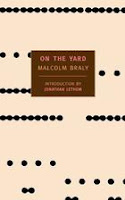sunday short stack

"Man is the only kind of varmint who sets his own trap, baits it, then steps on it."
- John Steinbeck
- NPR has the Dark Was the Night concert from Radio City Music Hall.
- 20 Brilliant Bookcases (via Neatorama)
- Elizabeth Wurtzel whines about losing her looks.
- The Best Beer Map of America (via @elinashatkin)
- Elbo.ws has a preview of the new Cracker album. (via @booksquare)
- "When there's no underbrush, the tree looks taller."
- The Atlantic asks: What makes us happy?
- Maud Newton asks: What would Jesus buy?
- I always have problems wrapping my brain around the ins 'n outs of time travel. Maybe if I watched all of these great time travel movies, I'd get it once and for all.












